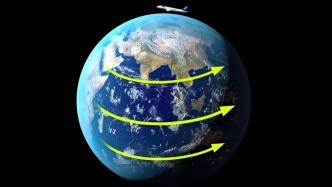
On the 12th, the reporter learned from Chengdu University of Technology that Professor Ma Chao of the Institute of Sedimentary Geology of the university led a big data sedimentation team to combine geological records and astronomical calculations to reconstruct the process of the Earth's rotation slowing down from 700 million to 200 million years ago from geological records for the first time. The relevant results were recently published in the Proceedings of the National Academy of Sciences.
In the geological history, the phenomenon of deceleration of the Earth's rotation has always existed due to the tidal effect caused by the gravity of the Earth and the Moon. But is the change of the deceleration of the Earth's rotation in the geological history the same as it is today? In response to this scientific question, the research team, together with the team of French astronomer Jacques Lascar and geologists from Germany and Ireland, conducted in-depth analysis and calculation of global geological records, and obtained the Earth's rotation period, the length of the Earth's day, and the distance between the Earth and the Moon from 700 million to 200 million years ago.
The results show that in the past 700 million to 200 million years ago, the distance between the Earth and the Moon increased by about 20,000 kilometers, and the length of the day increased by about 2.2 hours. In addition, the Earth's rotation did not slow down smoothly, but showed a step-like deceleration evolutionary pattern, namely "fast-slow" and "fast-slow". The two "fast-slow" transitions occurred 550 million years ago and 250 million years ago, respectively. These two periods corresponded to the Cambrian explosion of life and the largest mass extinction event in Earth's history. These two major "fast-slow" deceleration periods may have provided the necessary conditions for the evolution of early marine ecosystems.
"This study has important theoretical significance for reconstructing the evolutionary history of the Earth-Moon system and exploring the climate, environment, and biological evolution of the Earth's rotation slowdown," said Ma Chao. "On this basis, the research team will further explore the intrinsic connection between the Earth's rotation changes and natural phenomena such as the Earth's magnetic field, tidal effects, and climate change, in order to build a more comprehensive and accurate Earth system evolution model."